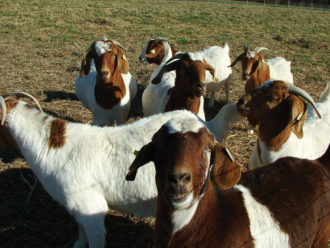GRIFFIN, Georgia -- The Southern region of the Sustainable Agriculture Research and Education (SARE) program has released its Call for Pre-proposals for the 2026 Research & Education Grants program.
The release timeline for the 2026 Research & Education Grants Pre-proposal, along with the full proposal invite, has been adjusted. Please make a note of this one-time, modified schedule. Awarded grants under this funding cycle will not be allowed a no-cost extension.
The 2027 Research & Education Grants are expected to be available per their normal grant release schedule following the winter Administrative Council meeting in February 2026.
Research & Education Grant pre-proposals focus on sustainable agriculture based on a systems approach to research, which aims to understand how the components of a system interact with each other and function as a whole. Proposed projects must focus on Southern SARE’s program objectives in developing sustainable agriculture systems or moving existing farming systems toward sustainability, as defined by Congress in the 1990 Farm Bill. Applicants specifically should be aware of this definition, as proposals will be reviewed with this legal definition in mind. The central purpose of research proposals is research-based projects with an educational/outreach component involved to share project results. SSARE is looking for systems research pre-proposals of around $400,000, though smaller proposals are also welcomed.
Download the Call for Proposals to follow the guidelines for writing and submitting the grant application. The deadline for submitting pre-proposals is November 21, 2025 at 12 p.m. (noon) EST. If selected, applicants will be invited to submit a full proposal in February 2026. Grants will be announced in August of 2026. Projects begin September 1, 2026.
The objective of the SARE program is to enable farmers and ranchers to move profitably toward production systems compatible with the goal of sustainable agriculture, including promoting good land stewardship, protecting the health and safety of people and animals, enhancing quality of life, and strengthening rural communities.
For more information on research and education projects, completed or ongoing, search the national SARE database.
For more information on Southern SARE, log on to http://www.southern.sare.org.
Published by the Southern Region of the Sustainable Agriculture Research and Education (SARE) program. Funded by the USDA National Institute of Food and Agriculture (NIFA), Southern SARE operates under cooperative agreements with the University of Georgia, Fort Valley State University, and the Kerr Center for Sustainable Agriculture to offer competitive grants to advance sustainable agriculture in America's Southern region. This material is based upon work that is supported by the National Institute of Food and Agriculture, U.S. Department of Agriculture, through Southern Sustainable Agriculture Research and Education. USDA is an equal opportunity employer and service provider. Any opinions, findings, conclusions, or recommendations expressed in this publication are those of the author(s) and do not necessarily reflect the view of the U.S. Department of Agriculture.
